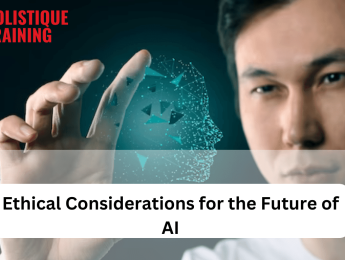- Table of Contents
- Introduction
- Back to the Basics: What Is AI?
- The AI Spectrum
- Top Artificial Intelligence Problems
- Bias and Fairness
- Accountability and Transparency
- Security and Privacy
- Job Displacement
- Existential Risks
- Examples of Ethical Dilemmas
- Autonomous Vehicles
- Predictive Policing
- Healthcare Decision-Making
- Employment and Automation
- AI in Warfare
- AI in Marketing
- AI in Open Banking
- How to Implement Ethics in AI
- Ethical Frameworks and Guidelines
- Diverse and Inclusive Teams
- Ethical Review and Auditing
- Explainable AI (XAI)
- Continuous Monitoring and Evaluation
- Stakeholder Engagement
- Ethical Training for AI Professionals
- Collaborative Governance
- AI in Creative Arts
- AI-Generated Art
- AI-Generated Music
- AI-Authored Literature
- AI and Mental Health
- AI-Driven Therapy
- Ethical AI Monitoring
- AI Bias in Mental Health Diagnosis
- Conclusion
Introduction
Artificial Intelligence (AI) has rapidly become an integral part of our lives, revolutionising industries, enhancing efficiency, and shaping the future of technology. However, as AI continues to evolve, it brings with it a host of ethical considerations that demand our attention and contemplation. In this comprehensive exploration, we will delve into the fundamental aspects of AI, explore the importance of ethical considerations in its development and deployment, examine the most famous AI problems, discuss the principles of AI ethics, and explore real-world examples of ethical dilemmas that arise in the realm of AI.
Back to the Basics: What Is AI?
Before we delve into the ethical complexities surrounding AI, let's refresh our understanding of what I truly is.
Artificial Intelligence refers to computer systems that can perform tasks that typically require human intelligence. These tasks can range from simple calculations to complex decision-making processes. AI systems use various techniques such as machine learning, natural language processing, computer vision, and robotics to emulate human-like intelligence. The objective of AI is to enable machines to learn from data, adapt to new situations, and perform tasks autonomously.
The AI Spectrum
Artificial Intelligence encompasses a spectrum of capabilities, ranging from narrow to general intelligence. Understanding this spectrum helps us grasp the diverse applications and potential of AI technologies. Here's an overview of the AI spectrum:
AI Category | Description |
Narrow AI | Specialised AI designed for specific tasks, excelling within predefined functions. |
General AI | Human-like intelligence with the ability to understand, learn, and apply knowledge across various tasks. |
Superintelligent AI | Advanced General AI surpassing human intelligence, posing complex ethical and existential risks. |
Human-AI Collaboration | Synergy between AI and human capabilities, enhancing rather than replacing humans in various domains. |
Artificial Narrow Minds | Specialised AI with limited adaptability, excelling in specific tasks or domains within their predefined scope. |
Top Artificial Intelligence Problems
As Artificial Intelligence continues to advance, it faces a myriad of challenges and problems that have significant implications for both technology and society. Some of the most famous AI problems are intricate and multifaceted, requiring careful consideration and ethical introspection.
Bias and Fairness
One of the most pressing AI problems is the presence of bias in the data used to train AI algorithms. AI systems learn from historical data, and if this data contains inherent biases, the AI may inadvertently perpetuate and amplify these biases in its decision-making processes. For instance, a hiring algorithm trained on data from a historically biassed job market may inadvertently discriminate against candidates from certain demographics, reinforcing systemic inequalities. To address this issue, researchers and developers are exploring methods like debiasing techniques and data augmentation to promote fairness in AI decision-making. Ensuring that AI systems are equitable and unbiased is critical for building a just and inclusive society.
Accountability and Transparency
AI algorithms often operate as "black boxes," meaning that their decision-making processes are complex and difficult to interpret. This lack of transparency raises concerns about accountability. When AI systems make erroneous or biassed decisions, it can be challenging to pinpoint the root cause or hold anyone responsible. This opacity not only hinders user trust but also presents challenges for regulators and policymakers seeking to ensure AI systems adhere to ethical guidelines. Researchers are working on developing explainable AI techniques, which aim to shed light on how AI arrives at its decisions. By making AI more transparent and interpretable, we can establish accountability frameworks and address potential ethical lapses more effectively.
Security and Privacy
As AI systems handle an increasing amount of personal and sensitive data, concerns about security and privacy have escalated. Malicious actors may attempt to manipulate AI systems by feeding them adversarial inputs, leading to potentially harmful outcomes. Additionally, data breaches involving AI-powered applications can have severe consequences for individuals and organisations. To safeguard against such threats, AI developers must prioritise security measures and implement stringent data protection protocols. Ethical considerations demand that AI is not only powerful but also secure and respectful of user privacy.
Job Displacement
The rapid advancements in AI and automation have raised concerns about the displacement of human jobs. While AI can improve efficiency and streamline processes, it may also render certain roles obsolete, impacting livelihoods and creating economic inequalities. Addressing this issue requires a proactive approach, including initiatives for reskilling and upskilling the workforce. By focusing on human-centric AI design and collaborating with industries, policymakers can foster an environment where AI complements human capabilities rather than replacing them, ensuring a more inclusive and sustainable job market.
Existential Risks
As AI research progresses, discussions around existential risks have emerged. Some fear that the development of superintelligent AI systems, capable of surpassing human intelligence, could pose unprecedented threats to humanity. Ensuring that AI systems are developed with stringent safety measures to prevent unintended catastrophic consequences is crucial. Researchers and organisations working on AI ethics are actively exploring methods to contain AI systems' behaviour within acceptable bounds and prevent any potential existential risks.
Examples of Ethical Dilemmas
As Artificial Intelligence becomes increasingly integrated into various aspects of our lives, it gives rise to complex ethical dilemmas that demand careful consideration and thoughtful solutions. These ethical dilemmas stem from the significant impact AI can have on individuals, communities, and society as a whole.
Autonomous Vehicles
The development of self-driving cars presents one of the most significant ethical dilemmas in AI. Autonomous vehicles use AI algorithms to make split-second decisions while driving, such as avoiding collisions or choosing between two potential accidents. One ethical dilemma revolves around the trolley problem: should an AI-driven car prioritise the safety of its occupants over the lives of pedestrians in the event of an unavoidable accident? Resolving this dilemma requires balancing the value of human lives and considering the impact of AI decisions on various stakeholders.
Predictive Policing
AI-powered predictive policing systems analyse historical crime data to forecast future criminal activity in specific areas. The ethical dilemma arises when these systems disproportionately target certain communities, potentially perpetuating existing biases and leading to over-policing of certain neighbourhoods. Striking a balance between utilising AI for crime prevention and ensuring fair treatment for all individuals is a significant challenge for law enforcement agencies and policymakers.
Healthcare Decision-Making
AI is increasingly utilised in medical diagnosis and treatment planning. While AI can improve accuracy and efficiency in healthcare, ethical dilemmas emerge concerning the responsibility for medical decisions. Who should be held accountable if an AI-powered diagnosis leads to incorrect treatment? Balancing the benefits of AI in healthcare with the importance of human judgement and medical expertise is essential to ensure patient safety and trust in AI applications.
Employment and Automation
The widespread adoption of AI and automation technologies raises concerns about job displacement and economic inequality. While AI can lead to increased productivity and efficiency, it may also result in the loss of jobs in certain industries. The ethical dilemma lies in finding a balance between the benefits of automation and the potential negative consequences for workers and society. Ensuring a just transition for displaced workers through reskilling and job creation becomes imperative in this context.
AI in Warfare
The use of AI in military applications, including autonomous weapons systems, raises serious ethical concerns. The development of AI-powered weaponry that can make lethal decisions without human intervention challenges the principles of human dignity and the laws of war. Determining the appropriate limits on the use of AI in armed conflicts and maintaining human control over critical decisions is crucial to prevent potential abuses and protect human rights.
AI in Marketing
AI is increasingly used in marketing to personalise advertisements and content for consumers. However, this practice raises ethical dilemmas related to data privacy and manipulation. AI algorithms collect vast amounts of user data to create personalised marketing campaigns, but this raises concerns about the exploitation of personal information and potential invasions of privacy. Striking a balance between personalised marketing and respecting user privacy is essential in ethical AI marketing practices.
AI in Open Banking
Open banking, which allows third-party financial service providers to access users' financial data through APIs, can be empowered by AI to provide personalised financial services. However, this integration raises ethical dilemmas about data security and consent. Users must trust that their financial data is protected and used responsibly. Ethical considerations involve ensuring robust security measures, obtaining informed consent, and giving users control over their data while leveraging AI's potential to offer valuable financial insights.
If you want to delve deeper into AI's potential and its responsible integration into Open Banking, don't miss our course ‘Utilising Artificial Intelligence in Open Banking,’ where we explore cutting-edge applications and ethical considerations in this exciting field. Join us to be at the forefront of innovation while upholding ethical standards in the dynamic world of AI and Open Banking.
How to Implement Ethics in AI
According to an article published byIBM, the percentage of executives who consider AI ethics a high priority surged from under 50% in 2018 to almost 75% in 2021, which shows how important it’s become. With that said, ethical considerations must be an integral part of the AI lifecycle, from the early stages of research and development to the continuous monitoring and improvement of deployed AI systems. Here are some essential steps to implement ethics in AI:
Ethical Frameworks and Guidelines
Establishing clear ethical frameworks and guidelines serves as the foundation for responsible AI implementation. These principles, encompassing fairness, transparency, privacy, and accountability, guide AI development. To ensure effectiveness, these frameworks should be comprehensive, adaptable, and continuously updated to address emerging ethical concerns. They provide a roadmap for AI developers and organisations, helping them align their AI systems with ethical standards.
Diverse and Inclusive Teams
Building diverse and inclusive teams is pivotal to addressing ethical considerations in AI. By including individuals from various backgrounds, cultures, and experiences, organisations gain a broader perspective on potential biases and ethical challenges. Diverse teams can identify and mitigate biases more effectively, ensuring that AI applications are sensitive to the needs and values of diverse user groups. Their insights contribute to fairer and more inclusive AI solutions.
Ethical Review and Auditing
Conducting regular ethical reviews and audits throughout the AI development process is crucial. These audits are essential for identifying potential biases, privacy risks, and other ethical issues that may arise. Ethical reviews ensure that AI systems comply with established ethical guidelines and regulatory standards. By testing algorithms on diverse datasets and assessing their decision-making rationale, developers can uncover and rectify ethical lapses before they manifest in real-world applications.
Explainable AI (XAI)
Explainable AI techniques offer a pathway to transparency in AI systems. They provide insights into how AI models arrive at their decisions, making the decision-making process more interpretable. While achieving complete transparency may be challenging in highly complex AI models, explainable AI strives to enhance accountability. It enables developers and users to understand the factors and features that influence AI decisions, which is particularly critical in applications where transparency is essential for trust and ethical compliance.
Continuous Monitoring and Evaluation
Ethical considerations should not be confined to the development phase alone. AI systems should undergo continuous monitoring and evaluation in real-world settings. This ongoing assessment helps ensure that AI systems adhere to ethical principles throughout their lifecycle. Regular feedback from users and stakeholders provides valuable insights into emerging ethical dilemmas and challenges. This iterative process allows organisations to address and rectify ethical issues promptly, ensuring that AI systems evolve responsibly.
Stakeholder Engagement
Engaging with stakeholders, including users, communities, and advocacy groups, is instrumental in understanding the impact of AI on different segments of society. Collecting feedback from stakeholders allows developers to incorporate diverse perspectives into AI system design and decision-making processes. This collaborative approach ensures that AI technologies align with the interests and values of various stakeholders. Ethical AI development involves an ongoing dialogue with those who are affected by and have a stake in AI systems.
Ethical Training for AI Professionals
Providing ethical training and education to AI professionals is essential to raise awareness of ethical challenges and best practices. Ensuring that AI researchers and developers are well-versed in AI ethics empowers them to proactively identify and address ethical issues throughout the AI lifecycle. Ethical training fosters a culture of responsibility and ethical awareness within organisations, contributing to the development of more ethically sound AI technologies.
Collaborative Governance
Establishing collaborative governance models involving industry, academia, governments, and civil society fosters responsible AI development. Collaborative governance allows for the co-creation of ethical guidelines and standards that reflect the interests and values of diverse stakeholders. This collaborative approach helps ensure that AI technologies are developed and deployed in a manner that aligns with societal needs and expectations. It also facilitates coordination and cooperation among different stakeholders, promoting a collective effort to address ethical challenges in the AI landscape.
AI in Creative Arts
Artificial Intelligence has expanded its reach into the realm of creative arts, offering innovative ways to produce music, art, and literature. These AI-driven creations have raised intriguing ethical questions and sparked debates about the definition of creativity and the role of human artists.
AI-Generated Art
AI algorithms, such as Generative Adversarial Networks (GANs), can create stunning pieces of visual art. Artists and researchers have embraced AI as a tool for inspiration, collaboration, or even as a medium for art itself. However, the question arises: who owns the rights to AI-generated art? Is it the programmer who created the algorithm, the user who fed it data, or the AI system itself? This ethical dilemma challenges traditional copyright and intellectual property laws.
AI-Generated Music
AI systems can compose music that is indistinguishable from human compositions. Musicians and composers are now collaborating with AI to enhance their creative processes. Nevertheless, this raises questions about the authenticity of AI-generated music and its impact on the music industry. Should AI-composed music be eligible for copyright protection, and can it compete with human creativity?
AI-Authored Literature
AI-powered language models can generate coherent and engaging written content. Some have even attempted to write novels or poetry. As AI systems become capable of producing literary works, the distinction between human and AI-authored literature becomes blurred. Ethical considerations include issues of authorship, recognition, and the potential impact on human writers' livelihoods.
Table 2: Ethical considerations of AI’s involvement in art
AI and Mental Health
The intersection of Artificial Intelligence and mental health care is a fascinating and impactful development. AI technologies are increasingly being used to assist individuals with mental health issues, but they also pose unique ethical challenges.
AI-Driven Therapy
AI chatbots and virtual therapists provide accessible and scalable mental health support. These AI systems can engage in conversations with individuals, offer coping strategies, and even detect signs of distress. While AI-driven therapy can be beneficial, questions about the privacy of sensitive mental health data and the ability of AI to truly understand and empathise with human emotions emerge.
Ethical AI Monitoring
AI can analyse social media posts, text messages, and other digital data to detect potential mental health issues. Some AI models claim to predict depression or suicidal ideation. While early intervention can save lives, the ethical implications of monitoring individuals' digital footprints raise concerns about privacy and consent.
AI Bias in Mental Health Diagnosis
AI models used for mental health diagnosis may inherit biases present in the training data, leading to misdiagnosis or unequal access to care for certain demographic groups. Ensuring the fairness and accuracy of AI-driven mental health assessments is a crucial ethical consideration.
Conclusion
As we continue to push the boundaries of AI, ethical considerations should remain at the forefront of development and deployment. Understanding the basics of AI, recognising the importance of ethical guidelines, acknowledging the significant challenges, and embracing principles of AI ethics will pave the way for a responsible and inclusive AI future. By addressing ethical dilemmas proactively, we can ensure that AI enhances human well-being, preserves social values, and contributes positively to the world. Only with collective efforts can we unleash the true potential of AI while safeguarding the interests of humanity.
























